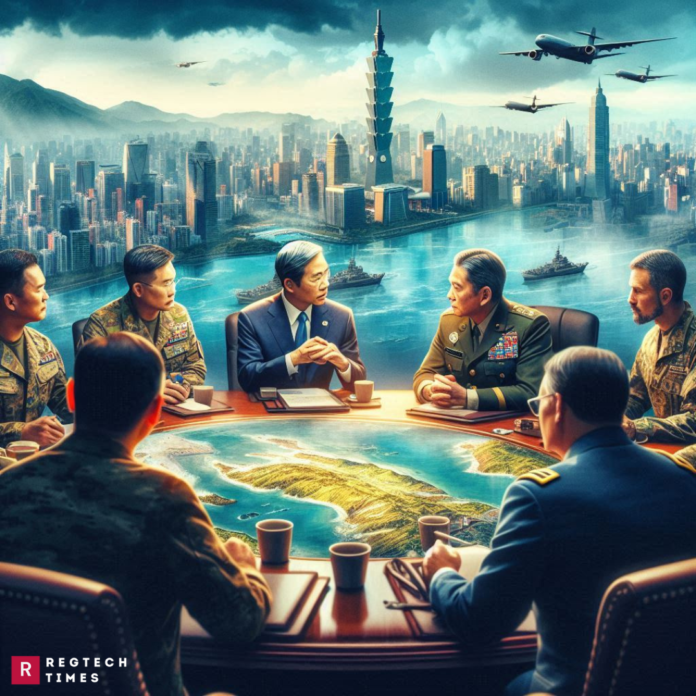In a significant geopolitical move, Japan has imposed sanctions on Si2 Microsystems, an Indian company, for allegedly helping Russia evade punitive measures related to its invasion of Ukraine. This action aligns with similar sanctions previously enforced by the European Union (EU) and the United States (US), marking a coordinated international effort to isolate Russia’s defense sector. This article delves into the details of these sanctions, the reasons behind them, and their broader implications.
Details of the Sanctions
On June 21, Japan announced sanctions on 11 companies from various countries, including India, China, the United Arab Emirates, Uzbekistan, and Kazakhstan. Among these, Si2 Microsystems, based in Bengaluru, India, was highlighted for its role in allegedly supporting Russia’s military and defense industries. The sanctions imposed by Japan include asset freezes and export bans aimed at curtailing the company’s ability to operate internationally.
Background of Si2 Microsystems
Si2 Microsystems is a prominent player in the field of system-in-package and microsystems solutions. The company is recognized for its advanced technological capabilities and has been a partner of India’s Ministry of Electronics and Information Technology (MeitY) under the Atmanirbhar Bharat (Make in India) initiative. This partnership underscores the company’s significance in India’s push for technological self-reliance.
Japanese Sanctions on Chinese Firms; China Condemns and Retaliates Against Lockheed Martin
Previous Sanctions
Japan’s decision to sanction Si2 Microsystems follows similar actions taken by the EU and the US earlier in 2023:
- European Union: In February 2023, the EU included Si2 Microsystems in its 13th package of sanctions against Russia. This move was part of a broader effort to target entities and individuals that allegedly support Russia’s military operations.
- United States: In November 2023, the US imposed sanctions on Si2 Microsystems, citing its involvement in supplying Russian defense-related entities with U.S.-origin integrated circuits. These components are critical for various military applications and are subject to stringent export controls.
US Sanctions Tzav 9 for Blocking Gaza Aid Convoys
Rationale Behind the Sanctions
The US Department of Commerce provided detailed reasons for its sanctions on Si2 Microsystems, which shed light on the broader international concerns:
- Support for Russian Defense: The US accused Si2 Microsystems of supplying integrated circuits to Russian consignees connected to the Russian defense sector. This support was deemed to contravene international regulations and export controls.
- Regulatory Violations: The integrated circuits in question fall under specific Harmonized Tariff System (HTS) codes (854231, 854232, 854233, and 854239), which have been controlled for export, reexport, and transfer within Russia since September 15, 2022. The documented shipments by Si2 Microsystems to Russia were viewed as violations of these controls.
- National Security Concerns: The US emphasized that these actions were contrary to its national security and foreign policy interests. The sanctions were justified under § 744.11(b) of the Export Administration Regulations (EAR), which governs export controls related to national security.
Indian Government’s Response
The Indian government has responded cautiously to the sanctions on Si2 Microsystems. Officials have asserted that India’s actions are lawful and within the bounds of international regulations. They contend that the interpretation of India’s ties with Russia as problematic is a matter of international perspective, not an indication of any wrongdoing by India.
Si2 Microsystems’ role as a partner in the Atmanirbhar Bharat initiative highlights the potential impact of these sanctions on India’s technological ambitions. The initiative aims to bolster India’s self-reliance in various sectors, including electronics and defense. The sanctions on a key partner like Si2 Microsystems could pose challenges to this mission by limiting access to critical technologies and international markets.
Treason Allegations Rock Canada Amidst Growing Secret Influence of India and China
The sanctions on Si2 Microsystems are part of a larger geopolitical struggle involving the US, EU, Japan, and Russia. They underscore the complexity of international trade and technological collaboration in an era of heightened geopolitical tensions. Several broader implications emerge from this development:
Global Coordination Against Russia
The coordinated sanctions by the US, EU, and Japan illustrate a unified international stance against Russia’s military actions in Ukraine. This alignment seeks to isolate Russia’s defense sector and disrupt its supply chains.
Russian Cyber Security Giant Kaspersky Faces Severe Sanctions from U.S.
Impact on Global Supply Chains
Sanctions on entities like Si2 Microsystems can have ripple effects on global supply chains. Companies involved in international trade must navigate complex regulatory landscapes and ensure compliance with export controls to avoid similar sanctions.
US Pressurize Japan and Allies to impose sanctions
Strategic Challenges for India
For India, these sanctions highlight the strategic challenges of balancing international partnerships while maintaining sovereignty in foreign policy decisions. India’s longstanding ties with Russia, particularly in defense, make this balance particularly delicate.
Technological Self-Reliance
The sanctions also emphasize the importance of technological self-reliance for countries like India. While the Atmanirbhar Bharat initiative aims to reduce dependence on foreign technologies, the sanctions on a key domestic player reveal vulnerabilities in achieving this goal.
Unraveling the Terraform Labs Saga: $4.47 Billion SEC Settlement
Japan’s sanctions on Si2 Microsystems mark a significant development in the ongoing efforts to pressure Russia over its invasion of Ukraine. They reflect a broader international strategy to isolate Russia’s defense sector by targeting its supply chains. For India, the sanctions pose both challenges and opportunities, underscoring the need for careful navigation of international partnerships and a renewed focus on technological self-reliance. As global geopolitical dynamics continue to evolve, the implications of these sanctions will likely resonate across various sectors and international relations.


